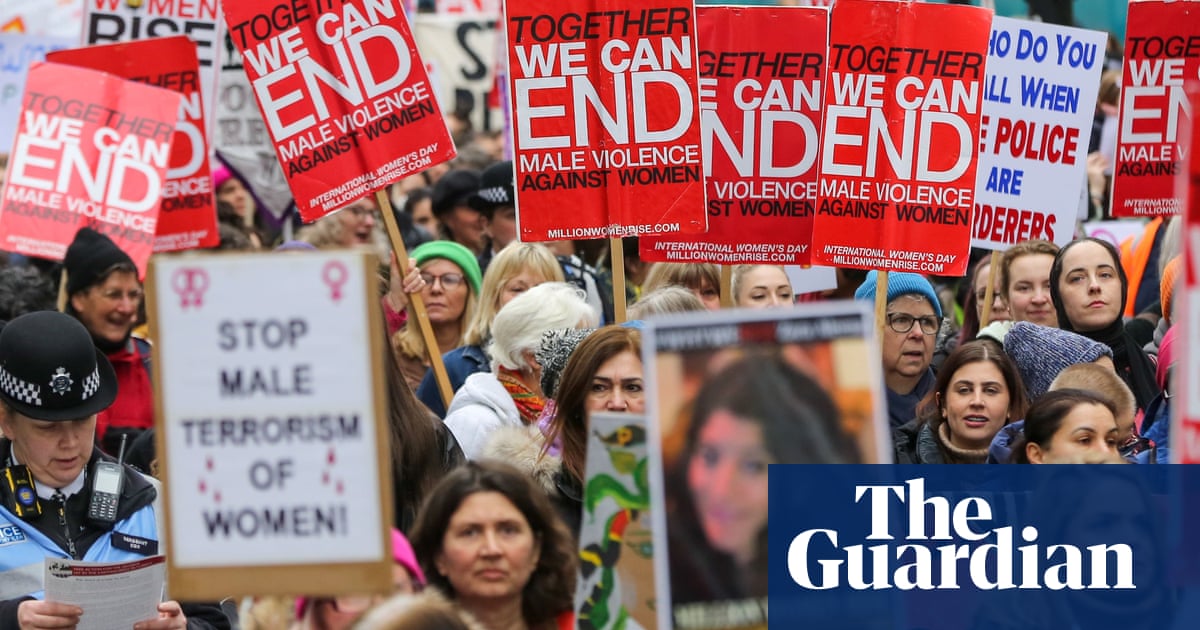Ministers appear to be “oblivious” to the true scale of harm caused by violence against women and girls and must do more to “reverse the worrying rise in misogyny”, MPs have said.
Parliament’s cross-party public accounts committee heard evidence that women’s refuges are forced to turn down 65% of requests for support amid soaring cases, while other dedicated services operating in communities are only able to help about half of those who request it.
Highlighting figures that show at least one in 12 women each year are affected by violence and one in five recorded crimes relate to violence against women and girls, the committee said the Home Office’s way of monitoring prevalence did not include all types of crime.
The MPs also say it is a “particular concern” that in spite of evidence that the age range of those most likely to become a victim or perpetrator of sexual violence is between 11 and 20, the Home Office does not include under-16s in its information gathering.
Launching the government’s promise to halve incidents of violence against women and girls within a decade last year, the home secretary, Yvette Cooper, said “our mission is for the whole of government, agencies, organisations and communities to work together”.
But commenting on the findings, committee member Anna Dixon said: “While it was welcome to hear of recent efforts to better coordinate action across departments, officials’ evidence caused alarm bells to ring.
“On some types of harm, government appears to be oblivious to the true scale and there remains scant evidence or learning from what is working locally.
“It is vital that the Home Office seizes this opportunity to lead and coordinate strong action across departments to ensure victims and survivors have access to the services and support they need and deserve, and that as a society we reverse the worrying rise in misogyny.”
The committee also said the government’s approach lacked an emphasis on prevention measures that it said were necessary to achieve long-term change.
In addition, the MPs called for clarity on how work with boys would be undertaken to “prevent harmful attitudes perpetuating”, and how the safety of young people online would be improved.
The committee added: “The Department for Education needs to step up and take a more proactive approach given the proliferation of misogynistic attitudes across social media platforms, and their influence on young men and boys, highlighted by the [committee] as a key area in need of attention.
“The increase in the number of cases reported to the Revenge Porn Helpline from 521 to 22,000 in just nine years, serves to highlight the evolving nature of [violence against women and girls].
“The [committee] fears this is symptomatic of a wider issue across a range of departments who appear to have limited understanding of the scale of the challenges they face in addressing this issue.”
In a series of recommendations, the MPs called on the Home Office to outline how all departments would be held to account for their contributions to tackling the issue.
The minister for safeguarding and violence against women and girls, Jess Phillips, said: “As part of our ambitious pledge to halve violence against women and girls in a decade, we have already put domestic abuse specialists in 999 control rooms in the first five forces, introduced new domestic abuse protection orders in select areas, and set out a clear process for police to release information about online stalkers.
“Our new violence against women and girls strategy, coming this summer, will take a cross-government approach with prevention at its heart – to better protect victims, support their journey to justice and hold perpetrators to account.”
